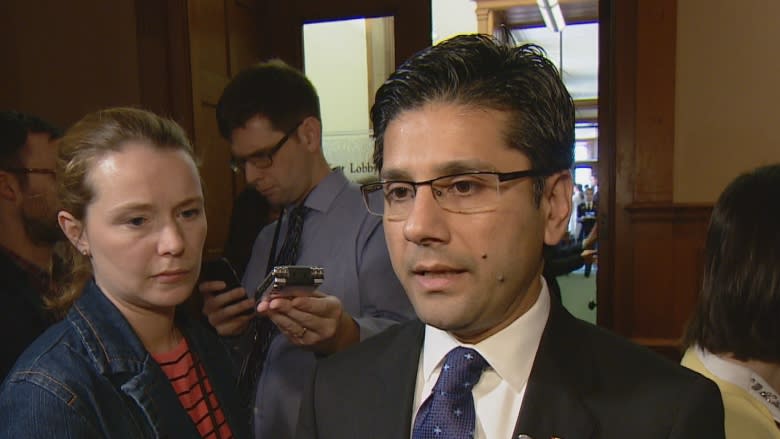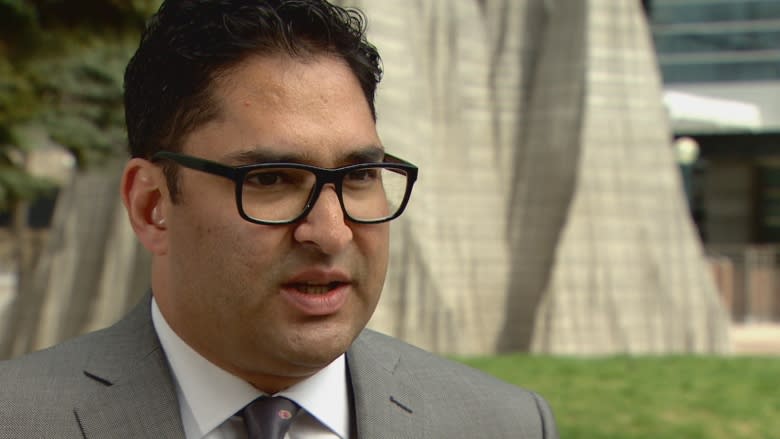Ontarians might have to be older than 18 to legally buy weed as the province decides how to sell it
Ontario Attorney General Yasir Naqvi remained tight-lipped Thursday about the province's plans for marijuana distribution, something that will include deciding how old someone has to be to buy weed.
It will be up to the provincial government to determine how Ontarians can buy recreational pot come July 2018 — the target the federal Liberals set after taking the first step toward legislation Thursday.
The federal Liberals tabled two bills Thursday, which will legalize the possession of up to 30 grams of dried or fresh cannabis. In doing so, they checked off one of their major election promises.
Now it's up to the provinces to decide how to sell it, something the federal task force on marijuana regulation suggested in December 2016.
First joint at 18?
The federal law will prohibit anyone younger than 18 from buying recreational weed, but provincial and territorial governments can choose to set higher targets.
Whether that will happen in Ontario is unclear. Though Naqvi emphasized throughout his statements to reporters that the provincial Liberals would focus on keeping marijuana out of the hands of children, he wouldn't say whether legal buyers might be 19 or older.
"We haven't made any of those decisions," he said. "We've been doing a lot of policy research, we've been doing a lot of policy analysis as to what options are available."
The former chief of staff to the provincial Health Department, Omar Khan, said he expects the province will focus on three things as it draws up its own regulations:
- Making sure minors can't get pot.
- Taking it off the black market and away from organized crime.
- Harm reduction and public health strategies.
Khan acknowledged that the Centre for Addiction and Mental Health in Toronto noted that cannabis use can affect brain development even into a person's 20s.
But he said the government will have to strike a balance between safeguarding youth and eliminating organized crime; if the age of majority is set too high, he argued that kids will go to the black market and neither issue will be solved.
"So it will be a balancing act," the public policy consultant said. "But I have full confidence that they'll look at both sides of the argument and make the best decision."
Where to sell it
The question remains, however, where sellers will ne legally allowed to set up. Although those operating illegal dispensaries have called for the ability to have storefront shops, Premier Kathleen Wynne has said before that she'd like to see the LCBO sell marijuana.
But Khan said he thinks it's unlikely that the province will sell cannabis alongside alcohol.
"You're not going to be able to buy your Glenlivet scotch next to your whatever brand of marijuana," he said. "I just don't see it happening."
It's more likely, he said, that Ontario will set up another Crown corporation to regulate and potentially distribute recreational weed.
"I think that the key piece going forward is going to be how the provinces decide to manage the retail distribution," he said. "I know Ontario and Quebec are going to want to work extremely closely, given the shared border."
Critics of the decision to legalize, however, have also raised concerns about an increase in drugged driving and the potential uptick in youths trying marijuana.
The federal government has tried to address both those issues, creating sentencing provisions of up to 14 years in prison for anyone who sells cannabis to a minor. It would also increase penalties for high drivers.
The spokesman for Toronto Police Traffic Services, Const. Clint Stibbe, said the force's officers are prepared for what the changes might mean. The police service has given 200 officers special training in sobriety testing.
And while there isn't a breathalyzer for pot, Stibbe said that if officers see someone who appears to be impaired, or they smell pot, they have grounds to make an arrest.
The electronic device is just an extra tool on our belt."



